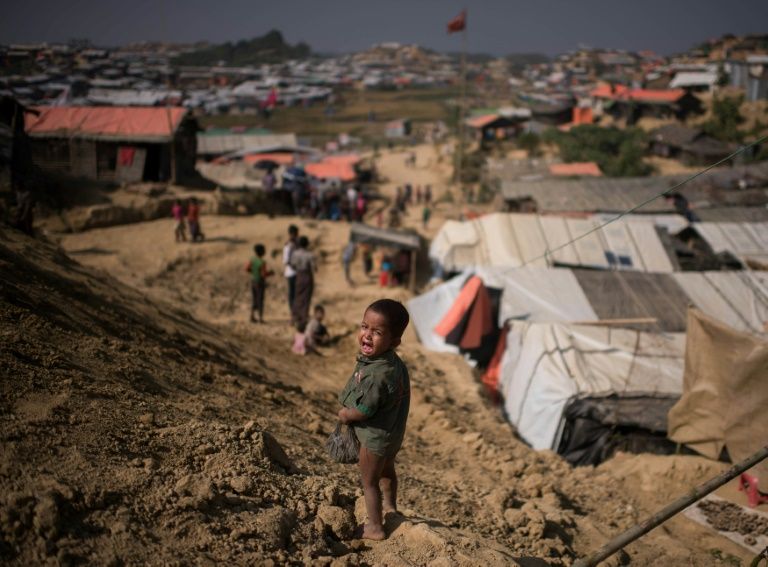Bangladesh Prime Minister Sheikh Hasina has slammed Myanmar for delays in the repatriation of Rohingya refugees who fled violence in the neighboring country.
Some 740,000 Rohingya took shelter in fetid, overcrowded camps in Bangladesh after Myanmar’s military drove them over the border in a brutal 2017 crackdown.
Many still fear for their safety if they return to Myanmar, where the Muslim minority has faced decades of repression and erosion of rights.
But the Bangladeshi prime minister’s comments late Sunday are a sign that the country’s patience is wearing thin.
The two governments signed a repatriation deal in November 2017, yet so far virtually no Rohingya have volunteered to return.
“The problem lies with Myanmar as they don’t want to take back the Rohingyas by any means,” Hasina told a press conference.
She also criticized international aid agencies working in the refugee camps in the border district of Cox’s Bazar – who object to any forced relocations.
“The problem that I now see is that different international agencies that are providing voluntary services or working at Rohingya camps in Cox’s Bazar never want any refugee to go back,” she said.
“The principal problem lies here.”
Bangladesh has said it will not force Rohingya to return to Myanmar, where the Muslim minority faced several waves of persecution before the 2017 crackdown which saw widespread murder, rape, and arson.
In May, the U.N.’s High Commissioner for Refugees Filippo Grandi said Myanmar must “show results” to convince Rohingya refugees to return.
But Hasina also called for an investigation into the organizers of protests against repatriation that have been held within the squalid camps.
“Who instigated the movement?” she asked.
“Those who provide assistance to Rohingyas have a serious objection, though the government has constructed very beautiful houses and structures at Bhashan Char,” Hasina said of the shelters Bangladesh has built on a barren, flood-prone island in the Bay of Bengal.
The plan to relocate many of the refugees onto the remote island remains widely unpopular among the Rohingya, and rights groups have raised concerns about the island’s ability to withstand violent monsoons and other storms.
Hasina’s comments follow the leak of a report by the Association of Southeast Asian Nations emergency response team, seen by AFP last week, which gave a glowing assessment of Myanmar’s efforts to entice Rohingya refugees back.
The report left observers incredulous for glossing over army atrocities, ignoring the ongoing civil war in Rakhine state and blaming the delays in repatriation on bungled paperwork by Bangladeshi officials.



